Description
ABSTRACT
Newspaper Copyright and the Permissible Adaption for Playwrights in Nigeria: Lessons from Òlòtūré
Mujib Akanni Jimoh*
In 2014, a journalist, Tobore Ovuorie published an article on human trafficking in The Premium Time, an online newspaper in Nigeria. In 2019, a movie, Òlòtūré, was produced by Ebonylife, which is an adaptation of Tobore’s article after permission had been granted by The Premium Times. Under the Nigerian Copyright Act, the rule on where the copyright in newspaper articles lies is provided in section 9(3) of the Copyright Act. The rule provides that where an author makes a literary, artistic or musical work in the course of his employment by the proprietor of a newspaper, the proprietor shall, in the absence of any agreement to the contrary, be the first owner of copyright in the work insofar as the copyright relates to the publication of the work in any newspaper, but in all other respects, the author shall be the first owner of the copyright in the work. This interpretation seems somewhat difficult for practitioners who have come up with different opinions on who owns the copyright in the article between Tobore and The Premium Times. In addressing this question, this article discusses what is copyrightable in a work and explores the jurisprudence of ownership of copyright in Nigeria. The extent to which adaptation of a work is allowed under copyright law is also analysed. The article employs analytical, narrative and theoretical approaches in addressing the subject.
Keywords: Copyright, Newspaper, Adaptation, Human trafficking, Nigeria
INTRODUCTION
The paradox of authorship and ownership in copyright is similar to the issue of law and morality, which do not necessarily always co-exist. The case of R v Akanni1 is instructive on this. Knowing that an old woman was in a house gutted by fire, the accused stood by and did nothing to rescue the old woman. The court found that though his act was disgraceful and immoral, it did not mean it was illegal. This analogy goes for copyright – the fact that a person authors a piece of work does not automatically vest ownership in that person.2 Thus, whilst a person may author a book, the ownership of the copyright in the book may vest in another.3
**Associate, Banwo & Ighodalo, Lagos, Nigeria; Email address: mu********@***oo.com; mj****@************lo.com.
I appreciate Mr. Olumide Osundolire (Partner, Banwo & Ighodalo), Mrs. Chinasa Uwanna, and members of the Intellectual Property Team at Banwo & Ighodalo for illuminating discussions. However, any error in this article is mine. None of them should be taken to agree with views and arguments expressed here.
- R v Akanni [1959] WRNLR.
- C Nwabachili & C Nwabachili, ‘Authorship and Ownership of Copyright: A Critical Review’ (2015) 34 Journal of Law, Policy and Globalization 1; Kelley Keller, ‘Owner or Author-What’s the Difference’ (Kelley Keller, 29 November 2015) accessed 10 February 2022.
- This notwithstanding, the author may still be able to claim some moral rights on the work, whilst the owner of the copyright enjoys the economic rights. See C Nwabachili & C Nwabachili, ‘Authorship and Ownership of Copyright: A Critical Review’ (2015) 34 Journal of Law, Policy and Globalization 1.

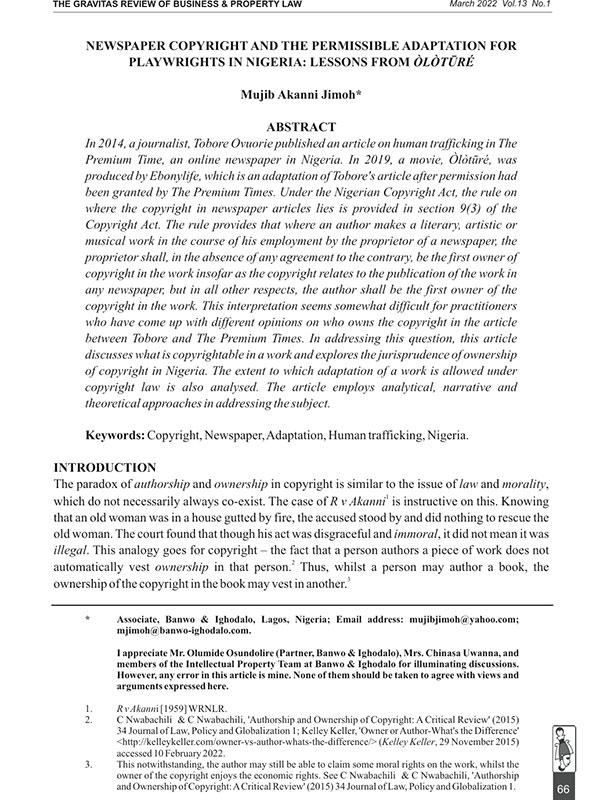
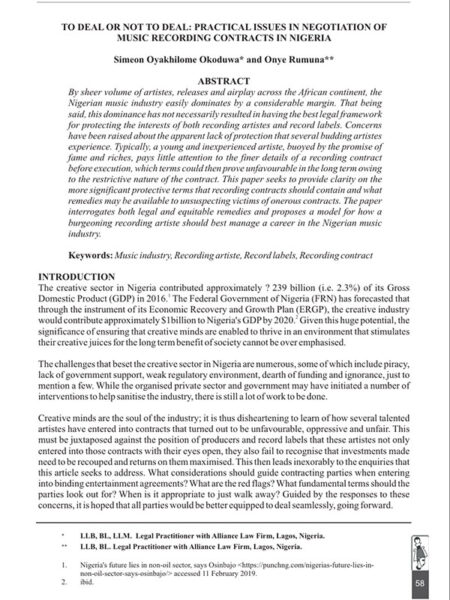
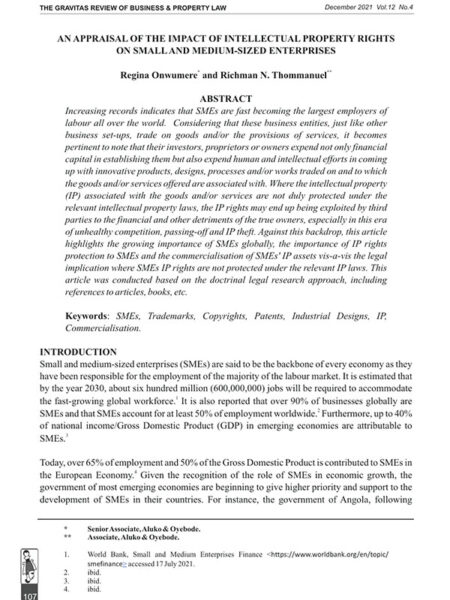
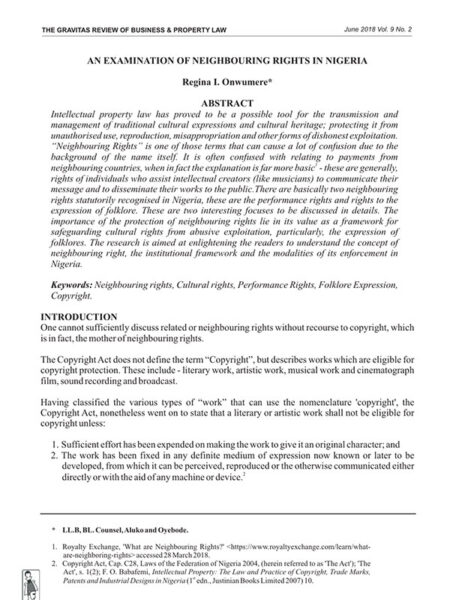
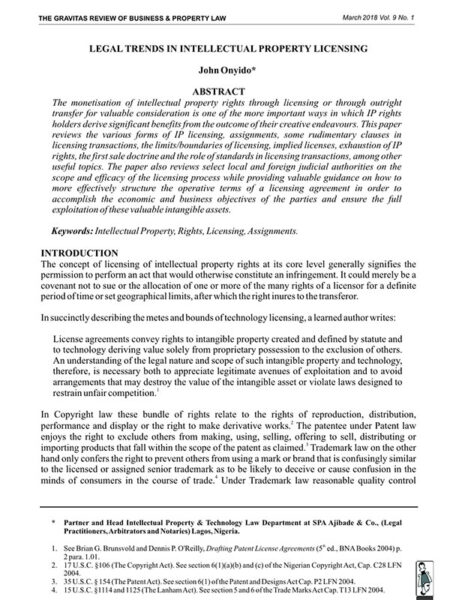


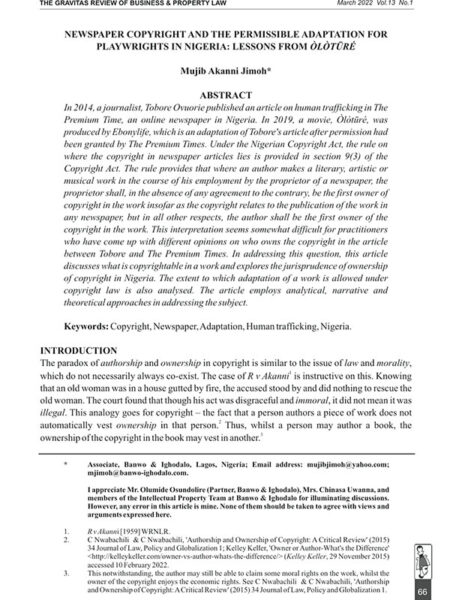
Reviews
There are no reviews yet.